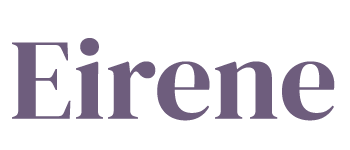When a person passes away, their estate often goes through probate, a legal process that validates the will and authorizes the executor to distribute assets. However, not all assets are subject to probate. Understanding which assets bypass probate can help minimize estate costs and speed up the transfer of wealth to beneficiaries.
What Is Probate and Why Does It Matter?
Probate is the court process that confirms the validity of a will and grants the executor the authority to manage and distribute the deceased’s estate. Some provinces require an executor to provide an inventory of estate assets before even applying for probate. The process can be time-consuming and costly, making it beneficial to structure an estate to minimize probate where possible.
Learn more about probate in Canada.
Assets That Do Not Go Through Probate
1. Jointly Owned Assets with Right of Survivorship
Assets held in joint ownership with right of survivorship automatically transfer to the surviving owner upon death and do not go through probate.
- Joint bank accounts
- Jointly owned real estate (except in Quebec, where civil law applies)
- Joint investment accounts
This allows for an immediate transfer, avoiding probate delays and fees.
2. Registered Accounts with Named Beneficiaries
Certain financial accounts allow owners to designate beneficiaries, meaning the assets pass directly to them without being included in probate.
- Registered Retirement Savings Plans (RRSPs)
- Registered Retirement Income Funds (RRIFs)
- Tax-Free Savings Accounts (TFSAs)
- Pensions with designated beneficiaries
3. Life Insurance Proceeds
If a beneficiary is named in a life insurance policy, the payout goes directly to them and does not form part of the estate. This ensures quick access to funds for beneficiaries, avoiding probate delays.
Find out more about naming beneficiaries in Canada.
4. Trust Assets
Assets placed in a trust before death are legally owned by the trust itself, not the individual, meaning they are not subject to probate.
- Living trusts
- Testamentary trusts
- Family trusts
Trusts allow for greater control over how and when assets are distributed while also offering tax benefits and probate avoidance.
5. Assets Held in a Private Corporation
If an individual owns shares in a private corporation, those shares are not subject to probate as long as ownership is structured correctly. Business succession planning can help reduce probate exposure.
6. Beneficiary-Designated Investment Accounts
Some financial institutions allow for a beneficiary designation on non-registered investment accounts, ensuring direct transfer without probate involvement.
Assets That Require Probate
While certain assets bypass probate, others generally require court validation before distribution.
- Solely owned bank accounts and investments
- Real estate owned solely by the deceased
- Personal property of significant value (vehicles, collectibles, jewelry)
- Business assets not held in a corporation
How to Minimize Probate Fees
Reducing probate exposure can save beneficiaries time and money. Strategies include:
- Holding assets jointly with right of survivorship
- Naming beneficiaries on registered accounts and insurance policies
- Setting up a trust to hold assets outside the estate
- Gifting assets while alive (subject to tax considerations)
Final Thoughts
Understanding which assets are not subject to probate can significantly impact estate planning strategies. By structuring an estate effectively, individuals can ensure a smoother transition of wealth while minimizing probate fees and delays. Consulting an estate lawyer or financial advisor can provide tailored solutions to maximize probate efficiency and asset protection.





